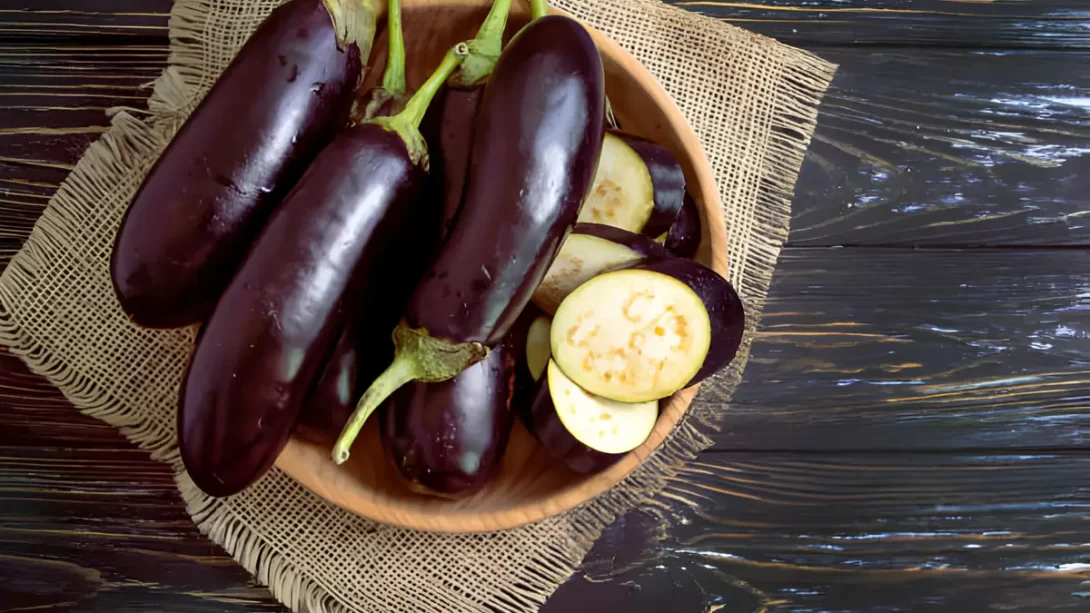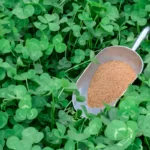Eggplants, with their rich purple hue and versatile nature, have long been a staple in culinary traditions worldwide. Often celebrated for their meaty texture and ability to absorb flavors, eggplants are a favorite in various cuisines. A common query that arises among both cooking enthusiasts and health-conscious eaters is about the edibility of eggplant seeds. This article seeks to explore the nature of these seeds, their nutritional aspects, and their role in culinary applications.
Eggplant Seeds
Eggplant seeds are small, soft, and edible, found embedded within the flesh of the fruit. They are more prominent and noticeable in larger and more mature eggplants. These seeds are an integral part of the eggplant’s structure and are generally consumed along with the flesh. The nutritional value of eggplant seeds often goes unnoticed, but they contribute to the overall nutritional profile of the fruit. They contain a variety of nutrients, including dietary fiber, essential fatty acids, and a range of vitamins and minerals, albeit in small quantities.
Edibility of Eggplant Seeds
Eggplant seeds are entirely edible and safe to consume. Unlike some other fruits and vegetables whose seeds may contain harmful substances, eggplant seeds do not pose any health risks when ingested. This edibility aligns with that of many other commonly eaten vegetables, where seeds are consumed as part of the whole fruit. The texture of eggplant seeds is soft and they blend seamlessly with the fruit’s flesh, making them barely noticeable in terms of mouthfeel when eating eggplants.
Nutritional Benefits of Eating Eggplant Seeds
Eggplant seeds, though small and often overlooked, contribute to the overall nutritional value of the vegetable. They are a source of dietary fiber, which is essential for digestive health and can aid in maintaining a healthy gut flora. Additionally, the seeds contain essential fatty acids, vital for maintaining heart health and supporting cellular functions. Eggplants, including their seeds, are also packed with antioxidants, particularly nasunin found in the skin, which is known for its anti-inflammatory and free-radical scavenging properties. While the seeds themselves are not a major source of nutrients compared to the whole fruit, their cumulative contribution to the nutritional content of eggplants is noteworthy.
Culinary Uses of Eggplant with Seeds
The presence of seeds in eggplants can influence the texture and taste of the prepared dish, although typically in subtle ways. When cooked, the seeds soften and blend into the overall texture of the eggplant, enhancing its characteristic mouthfeel. For culinary applications, there’s generally no need to remove the seeds. They can be enjoyed in a variety of dishes, from roasted and grilled preparations to stews and curries.
To optimize the taste and texture, it’s advisable to select fresh, younger eggplants, as they have fewer and less noticeable seeds. Larger, more mature eggplants tend to have more seeds, which can sometimes contribute to a slightly bitter taste. Incorporating herbs, spices, or other flavorings can effectively balance any bitterness. Recipes like baba ganoush, ratatouille, or eggplant parmigiana can be great ways to enjoy eggplants in their entirety, seeds included.
Potential Concerns or Risks
While eggplant seeds are safe and edible, there are a few considerations to keep in mind. The bitterness in some mature eggplants, partly attributed to the seeds, can be off-putting for some palates. However, this bitterness is not indicative of any harmful substances and can be mitigated through proper cooking techniques. Selecting younger, smaller eggplants can also help avoid this issue.
Potential Concerns or Risks
While eggplant seeds are generally safe to eat, some people might experience mild digestive discomfort, especially when consuming eggplants in large quantities. This is typically due to the fiber content in the seeds and flesh, which, if not a regular part of one’s diet, can cause temporary gastrointestinal upset. Furthermore, individuals with a history of kidney stones should be mindful of their eggplant consumption, as they contain oxalates, which can contribute to stone formation in susceptible individuals.
Conclusion
In summary, the seeds within eggplants are perfectly edible and safe to consume. They contribute to the overall nutritional value of the vegetable, offering dietary fiber and essential fatty acids, and are integral to the texture and flavor of eggplant dishes. While they can be slightly bitter in mature eggplants, this can be balanced with proper cooking techniques and seasoning.
Eggplants, seeds included, are a versatile ingredient in the kitchen. They can be roasted, grilled, baked, or stewed, making them a delicious addition to a variety of dishes. By understanding the nature of eggplant seeds and their impact on dishes, cooks and food enthusiasts can confidently use this vegetable in its entirety, maximizing both flavor and nutrition.
Therefore, the next time you’re preparing an eggplant dish, consider using the whole fruit, seeds and all, to enjoy the full range of flavors and benefits this wonderful vegetable has to offer. With its rich nutritional profile and versatility in cooking, eggplant can be a valuable addition to a balanced and healthful diet.




